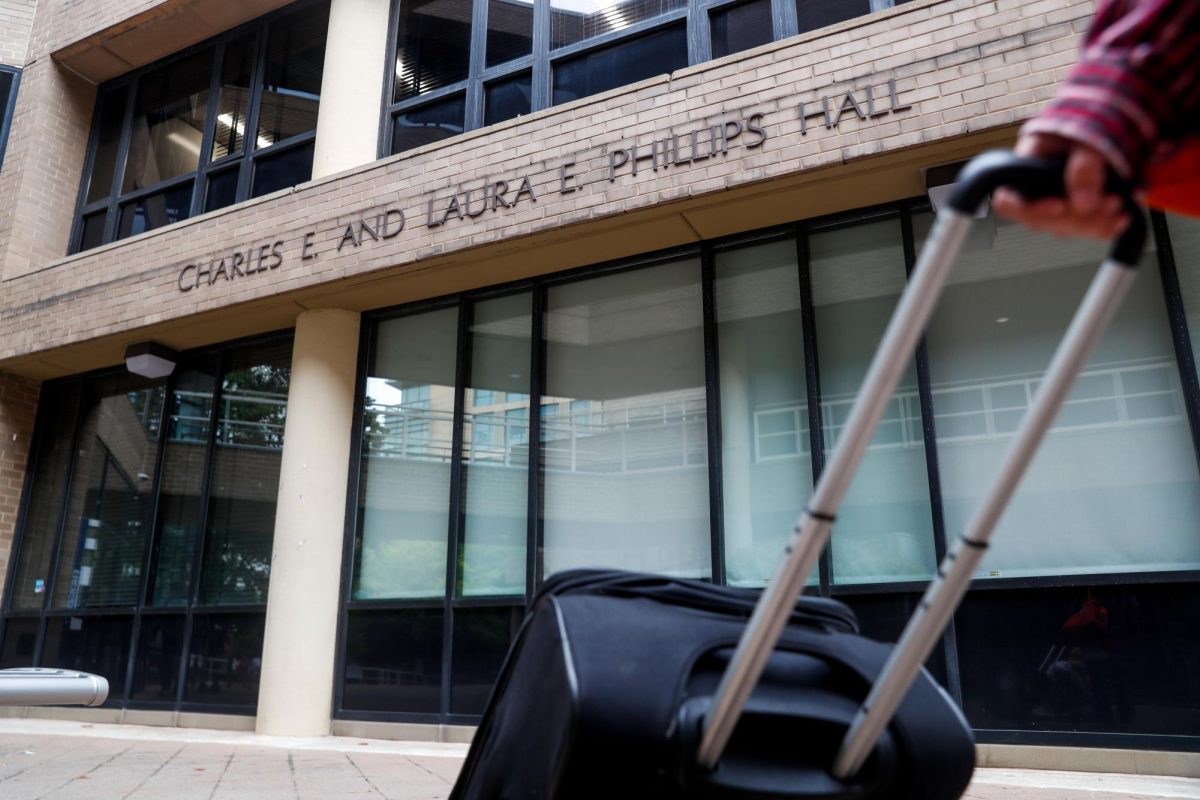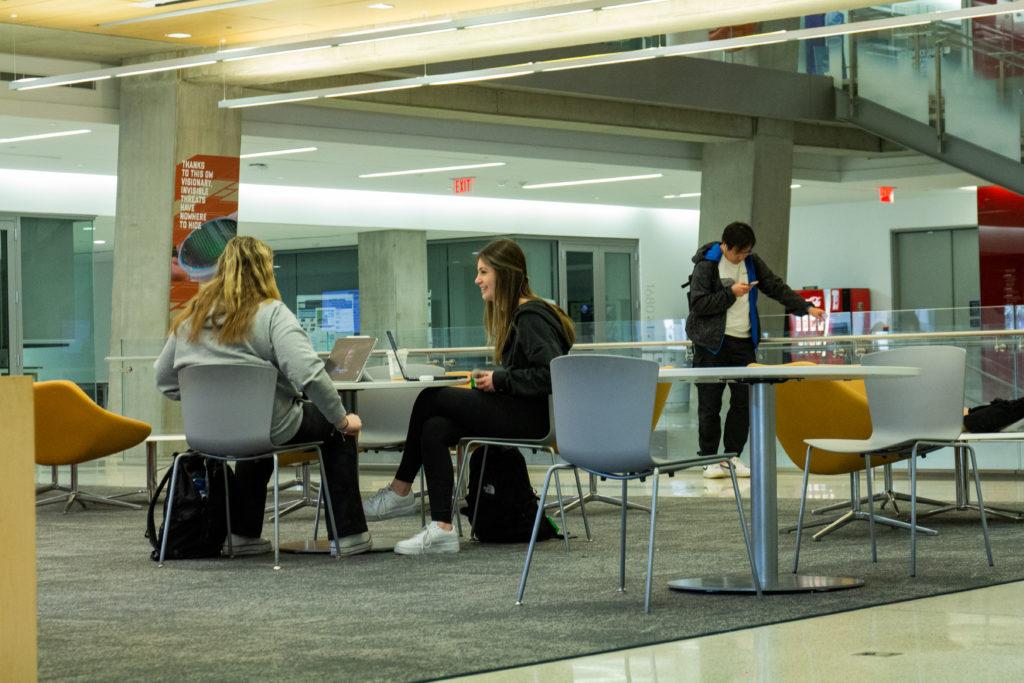Updated: Sept. 19, 2023, at 9:53 a.m.
Columbian College of Arts & Sciences officials eliminated reimbursements for tenured faculty academic travel for this fiscal year, leaving professors with doubts about GW’s research mission and connection to the academic world.
CCAS Dean Paul Wahlbeck said the college is experiencing “very modest” revenue increases this year because of decreased graduate student enrollment alongside a jump in expenses due to inflation and compensation, leading the college’s leadership to cut off reimbursements for tenured professors’ academic travel this fiscal year. But in a June 30 letter sent to University President Ellen Granberg, about 37 professors contested the elimination of reimbursement funding, stating that the lack of accessible academic travel threatens their research and limits their ability to interact with other academics.
“If GW aspires to be a top-tier research University, then it must at a bare minimum support faculty research at previous levels, even in financially challenging times,” the letter states.
The letter states that travel restrictions can cause junior faculty members who contribute “significantly” to GW’s diversity in race, gender, sexual orientation and disability to leave GW over the possibility of officials cutting their funding, which could threaten the University’s diversity and inclusion commitments. The letter also states that cutting travel funds is “deeply inequitable” because some academic disciplines rely on travel to conduct field research while others do not. The letter didn’t specify which subjects would be most affected.
“We are convinced that this problem can only be resolved by decisions at the highest level,” the letter states. “GW needs to reconsider its budget model in the long term, and, more immediately, examine quite seriously how this short-term savings will impact GW’s long-term reputation, as well as the morale of its faculty.”
Wahlbeck said he and CCAS leadership have discussed funding challenges “repeatedly” with department chairs and program directors and that they will share updates when additional information is available. He added that in past fiscal years, CCAS was able to provide faculty with more research support as their “financial picture came into focus.”
“We understand the importance of faculty travel in advancing scholarship, research and the broader University mission, and we remain committed to finding additional ways to support faculty in this regard,” Wahlbeck said.
Faculty senators raised concerns about cutting CCAS academic travel funds for tenured faculty in a Faculty Senate meeting last week. In the meeting, Provost Chris Bracey said he is working to “identify additional funds” in his office to cover faculty’s academic travel expenses and that the deans of individual colleges made the decision to cut funding.
Bracey said faculty’s research was an essential part of GW being able to join the American Association of Universities, a prestigious national research organization, in June.
“It disturbs me to see that faculty are not able to do the research, or that graduate students are unable to support the research that has gotten us to the point where we’ve been invited to the AAU,” Bracey said during the meeting.
Faculty said they often use their travel reimbursements to attend academic conferences, which provide spaces for faculty to collaborate and communicate with other members of their field on research and curricula.
Katrin Schultheiss, an associate professor of history and a faculty senator, said she first heard about the budget cut from her department chair when officials were finalizing the budget last spring. Schultheiss said in the past, faculty in the history department were able to request reimbursements for scholarly travel and would receive a partial or full refund depending on the amount of funding the department had at the time.
“It was always a limited amount of money,” Schultheiss said. “But there was always money.”
Schultheiss said she finds it “ironic” that officials restricted tenured faculty’s academic travel reimbursements the same year that GW joined the AAU because the decision “cut back” on faculty’s ability to interact with other scholars.
“It really needs to be restored by next year because travel to academic conferences and other kinds of academic scholarly travel are just essential to the research mission of the University,” Schultheiss said.
Joe Cordes, a professor of economics and a faculty senator, said the Office of the Provost asked colleges and GW administration to make budget cuts as a result of enrollment numbers being lower than projected for FY 2023 and expenses being higher than projected. Cordes said GW will update and present its budget to professors at the October Faculty Senate meeting.
“I don’t think that’s a forever thing,” Cordes said. “I absolutely think the University will get a handle on it, and also the University overall is in perfectly fine financial shape.”
David Rain, an associate professor of geography and international affairs and a faculty senator, said individual colleges make payments to the Office of the Provost in order to help pay for University-wide costs. Rain said in recent years, the Office of the Provost has asked for larger amounts from colleges to cover these growing expenses, which has led to budget cuts within individual colleges.
Rain said most of CCAS’s budget goes toward paying employees, leaving little money for the college to delegate funds to departments.
“Eighty-two percent of our budget is compensation, so that’s usually considered off-limits,” Rain said. “They would rather cut travel than lay people off, which is understandable. But it just means there’s not a lot of room or budget items to play with and especially since the costs keep going up.”
Rain said the geography department receives grant funding from organizations like the National Science Foundation for academic travel expenses. Rain added that adjunct faculty still receive academic travel reimbursements as a part of their union contract with GW.
Kai Blevins, a doctoral candidate in the anthropology department, said graduate students in the department don’t yet know if they will receive their annual $600 academic travel reimbursement and that officials will announce the decision in a chairs meeting Friday. They said doctoral students rely on academic travel funds because it assists them in professional networking and presents potential for publishing research.
Blevins said officials shared no update on the reimbursements at the meeting Friday.
“Now when they’re just kind of taking this away, or even kind of threatening to take this away without giving us any notice at all in the previous fiscal year, it just seems really irresponsible and honestly like a slap in the face,” Blevins said.
Mark Berlin, a doctoral candidate in political science, said graduate students in his department still receive $700 in reimbursement for academic travel as long as they are participating in the conference they are traveling for. Berlin said he is worried about what the travel restrictions could mean for untenured faculty and graduate students who want to present their research.
“When you’re tenured, it’s less imperative to go and present your research and get out there and do those type of things,” Berlin said. “So it’s kind of like scholars that are in a more precarious position.”
This post was updated to reflect the following:
The Hatchet incorrectly reported that the CCAS budget cuts were made for FY 2023. They were made for FY 2024. We regret this error.








